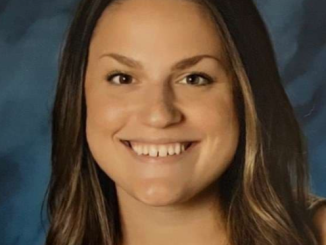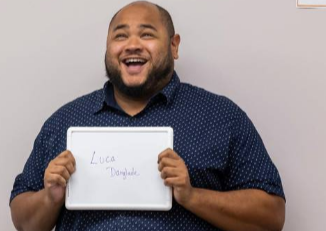
Elementary school teachers brag about ignoring parents’ requests to refer to their children by their given names and pronouns in virtual panel
Elementary school staffers bragged about outright ignoring parents’ requests to refer to their children by their given names and pronouns late last month, during a virtual panel that saw speakers refer to parents as ‘caregivers.’
The virtual ‘Creating and Sustaining GSAs in Elementary Schools’ meeting, held over Zoom April 26, saw moderator Katy Butler, a second grade public school teacher at Harvey Milk Civil Rights Academy in San Francisco, poise a question to her fellow panelists concerning pronoun use when it comes to their students.
The inquiry, sent to the group by another, unnamed educator, asked advice on how to deal with parents peeved over teachers’ pronoun use.
‘What should we do if a parent requests that we refer to their child by the pronouns associated with their sex assigned at birth instead of their preferred pronouns, and that we use a legal name instead of a student’s chosen name?’ Butler – who panel organizers billed as a white queer cisgender female teacher on social media – read.
Butler – the creator of Gender Inclusive Classrooms, the group that organized the panel – then gave way for the three other panelists, staffers at public schools across the country, to weigh in on the matter.
One panelist, fellow cocreator Kieran Slattery, a fifth grade teacher in Massachusetts, proceeded to provide his advice on the matter – proudly revealing instances where he ignored parents’ requests to call their child by certain pronouns.
‘So, I can respond with something that I’ve done,’ Slattery, who teaches at Jackson Street Elementary, began.
‘This came up for me – it’s come up in a couple different ways – but it’s come up for me where caregivers asked.’
Slattery said: ‘I actually refer to their child’s name… using the name the name they asked to be referred to and their chosen pronouns, and caregivers reacted very strongly.’
The teacher then detailed how parents ‘followed up with me and the principal, and said, like, “I know you were using a different name than my child’s given name at birth and the pronouns we gave them, and I’m respectfully asking that you use the name and the pronouns that we gave them.”’
Slattery – who panel organizers billed as a ‘white, queer transgender man’ – proceeded to warn the three other panelists of the legal concerns that come with rejecting parents’ requests on how they refer to their children.
‘So the laws in every state are different, obviously, and I can’t speak to the laws in everyone’s particular state, but I will say – again, the resources that we’ll give you after this have some helpful sites where you can look up what the rules are for your state,’ the Northampton elementary school teacher said.
‘Before I responded to the caregiver, I made sure I ran it by my principal and my superintendent just to make sure that they had my back.’
The transgender teacher then revealed how he rejected the request of one pair of parents – or as he called them, ‘caregivers’ – touting the slight as a victory.
‘And then I responded – and I chose my words carefully – and I said, “I hear you, I hear what you’re saying,” Slattery said, adding that, ‘I tried to really affirm what the caregiver was asking me, like in terms of, “I hear you saying that you’re feeling uncomfortable with me using the child’s preferred name and pronouns; I hear that you’re using different ones at home.’
He continued: ‘But here at school, the expectation is that all of my students feel comfortable and welcome in my classroom.’
The assertion saw the educator put particular emphasis on the word ‘my.’
‘So, in my classroom, I will refer to your child by whatever name and pronouns that they’ve told me they feel most comfortable with,’ Slattery then said, with his fellow panelists nodding in approval.
The teacher went on to equate conveying that concept to parents to teaching children in his classroom.
‘Just have that be it,’ he said – ‘almost like the guidelines I try to use when I’m, like, explaining hard topics to my students. Like, less is more.’
The other panelists again nodded in approval.
Slattery continued: ‘I just say, like, “That sounds like it works really well for you at home, and you can absolutely choose to do whatever you like at home.
‘In my classroom – and I even say, like, every year I start out my year by sending home information to caregivers that says, like, “Just so you know, this is an affirming class – the way that I affirm students is I call them by the names they ask to be called by and use their correct pronouns.’
The teacher then reiterated how he denied the parents’ request.
‘I just told them – maybe that’s not helpful – I just told them, “No,”’ seemingly conceding the contentious nature of his assertion.
‘Respectfully, no.’
The assertion again garnered more impassioned nods from the other panelists.
‘And because I had my principal and my superintendent’s support, there wasn’t much they can do,’ Slattery then said.
‘And they eventually, kind of like, found another topic to squawk about,’ he added, before letting out a laugh.
‘And they left that alone.’
The remaining panelists all seemed to agree with the educator’s assertion, with Butler in particular nodding affirmatively throughout her contemporary’s spiel.
Another panelist, 5th grade Spanish teacher Daniel Alonso, echoed Slattery’s sentiments, describing a similar incident between him and a set of parents at Chavez Elementary in Yonkers, New York.
‘Similarly to what Kieran said,’ said Alonso, referring to Slattery, ‘in my school district, LGBTQ+ students have a bill of rights – and the fourth one is that they have the right to be referred to by their gender pronouns and a name that fits their gender identity.
‘And so, similarly, there was a situation where a parent felt that the school was not doing what they wanted them to do, and we – I don’t even know if we were respectful about it – we were just like, “No, sorry. Like, our district-wide rule is that the student determines that, not you,”’ he said, while offering a smug smile.
Alonso – who organizers described as ‘an advocate for all, lover of puppies, and redeemer of all things Mariah’ – added: ‘Even though you are the parents.’
The final panelist, Maryland School Counselor Heather Eig, seemed in agreement with the others.
‘Ours is the same – and again, it really speaks to where you’re working, where the district is, the state laws, and really having the backing of your administration, and your superintendent, and the a district that says, “This is our policy” – and I’m going to follow suit.
A clip of the exchange shared to Twitter by journalist Colin Wright Tuesday quickly went viral, garnering more than 1,000 likes and hundreds of reshares.
Observers shared their outrage over the panelists’ assertions, calling them criminal and a gross overstep of public school staffers’ authority.
‘LAWSUITS,’ one user wrote in all capital letters. ‘This is a violation of the human and constitutional rights of parents.’
Another user responded to Slattery’s assertion that there was nothing parents could do when confronted with parents concerns over how teachers address their children.
‘They could pull their child out of your class and demand another teacher. That’s what they could do,’ the observer wrote.
A further user remarked on how it was unethical for teachers to be referring to a student by pronouns or names not known to the kids’ parents of guardians.
‘Teachers might spend around 1 or 2 hours a day, 5 days a week for 9 months with a student in a year. Parents will devote a major part of everyday to their kids for 18 years.
‘Teachers shouldn’t be keeping secrets with a child or keeping those same secrets from their parents,’ they wrote.
The panel’s strong words come shortly after parents expressed outrage toward California school district after learning that male counselors who identify as non-binary were sleeping in the same rooms as fifth-grade girls at a school-organized science camp.
In another instance in January, the parent of a 12-year-old Florida girl who tried to hang herself twice at her school after ‘months of secret meetings about her gender identity’ with school officials, slammed district staff for going behind their backs and ‘creating a double life’ for their daughter.
The parents subsequently filed a lawsuit contending staffers violated their parental rights by failing to inform them of the child’s alleged gender identity crisis.
* Article from: Dailymail.Com


